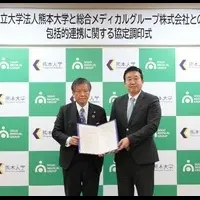
New Survey Highlights Public Support for Pharmacy Compounding Amid Awareness Gaps
Emerging Insights from Recent Survey on Pharmacy Compounding
Overview
A recent national poll conducted by Embold Research on behalf of the Pharmacy Compounding Foundation sheds light on public attitudes toward pharmacy compounding. This survey has unveiled strong support for compounding pharmacists, who play a crucial role in addressing the unique medication needs of individuals and managing drug shortages. However, it also highlights a concerning lack of awareness about the stringent regulations governing the industry.
Key Findings of the Survey
The survey, which gathered responses from 1,222 adults across the nation, presents some interesting data:
- - 78% Positive Experience: Among those who have utilized compounding pharmacies, a significant 79% reported a favorable experience with the services provided.
- - General Awareness: Surprisingly, only 42% of the participants were familiar with what pharmacy compounding entails.
- - Regulatory Understanding: While 87% correctly acknowledged that compounded medications require a prescription from a licensed healthcare provider, nearly a third (31%) were unaware of the rigorous regulatory frameworks that guide the industry.
- - Importance of Access: A substantial 84% of respondents indicated it is vital for compounding pharmacies to have the capacity to create copies of FDA-approved drugs, particularly during times of shortage.
The Importance of Pharmacy Compounding
Pharmacy compounding is a specialized practice that allows pharmacists to create customized medications tailored to meet individual patient needs. This is particularly crucial for patients who may require unique dosages or medication forms that are not available commercially. Furthermore, federal law permits compounding pharmacists to produce substitutes for FDA-approved products when those items are listed as being in short supply.
In just the past two years, the FDA's drug shortages list has included essential medications such as lidocaine, pediatric amoxicillin suspension, and GLP-1 medications, demonstrating the vital role compounding pharmacies play in ensuring patient access to necessary treatments.
Challenges and Opportunities
Scott Brunner, CEO of the Alliance for Pharmacy Compounding, expressed concerns over the public's lack of awareness regarding the importance of pharmacy compounding in the healthcare system. He noted, "Despite the long-standing history of pharmacists providing individualized formulations and helping patients through drug shortages, the need for increased education about compounding practices remains urgent."
Jennifer Burch, the president of the Pharmacy Compounding Foundation, also emphasized the opportunity present in these findings. With so many individuals expressing support for pharmacy compounding, there is a clear path forward for healthcare professionals to enhance patient knowledge and confidence in compounded therapies.
Conclusion
As the healthcare landscape continues to evolve and face challenges related to medication shortages, the findings from this survey present a critical call to action. The Pharmacy Compounding Foundation aims to address these awareness gaps through educational initiatives aimed at both the public and healthcare providers. Ensuring that patients understand the value and safety of compounded medications will be key to maintaining confidence in their use as a part of comprehensive healthcare solutions.
The results underline the need for ongoing dialogue between compounding pharmacists, healthcare professionals, and the public to further enhance understanding and support for this essential aspect of patient care.
Topics Health)










【About Using Articles】
You can freely use the title and article content by linking to the page where the article is posted.
※ Images cannot be used.
【About Links】
Links are free to use.